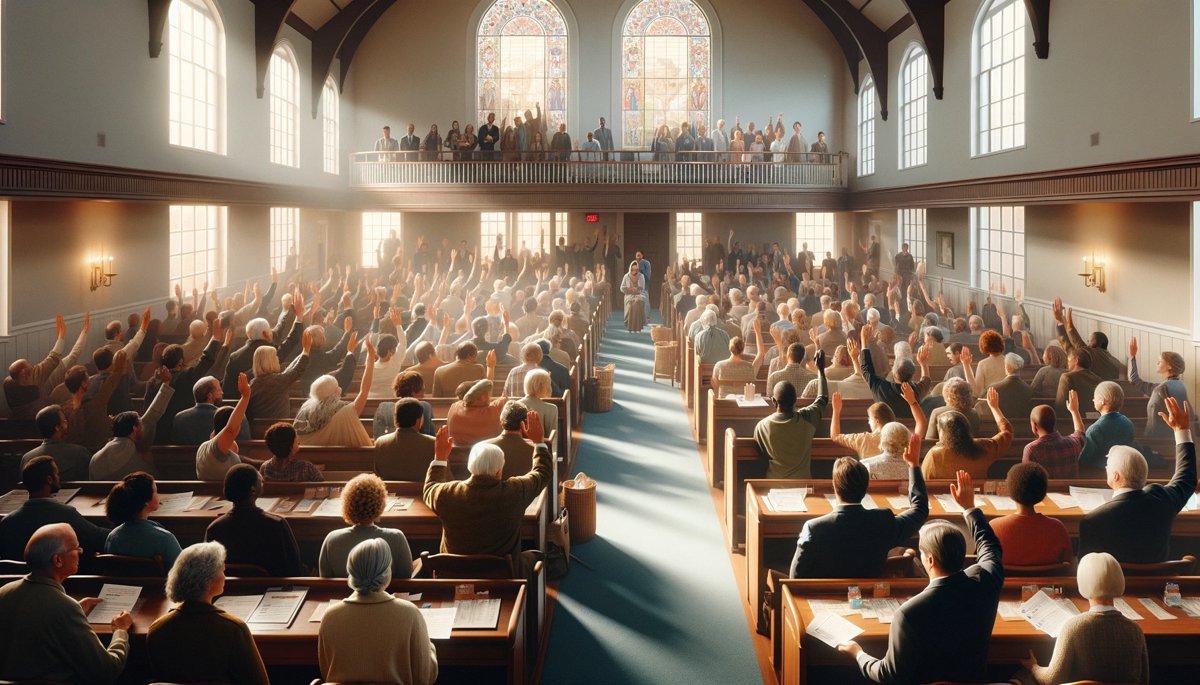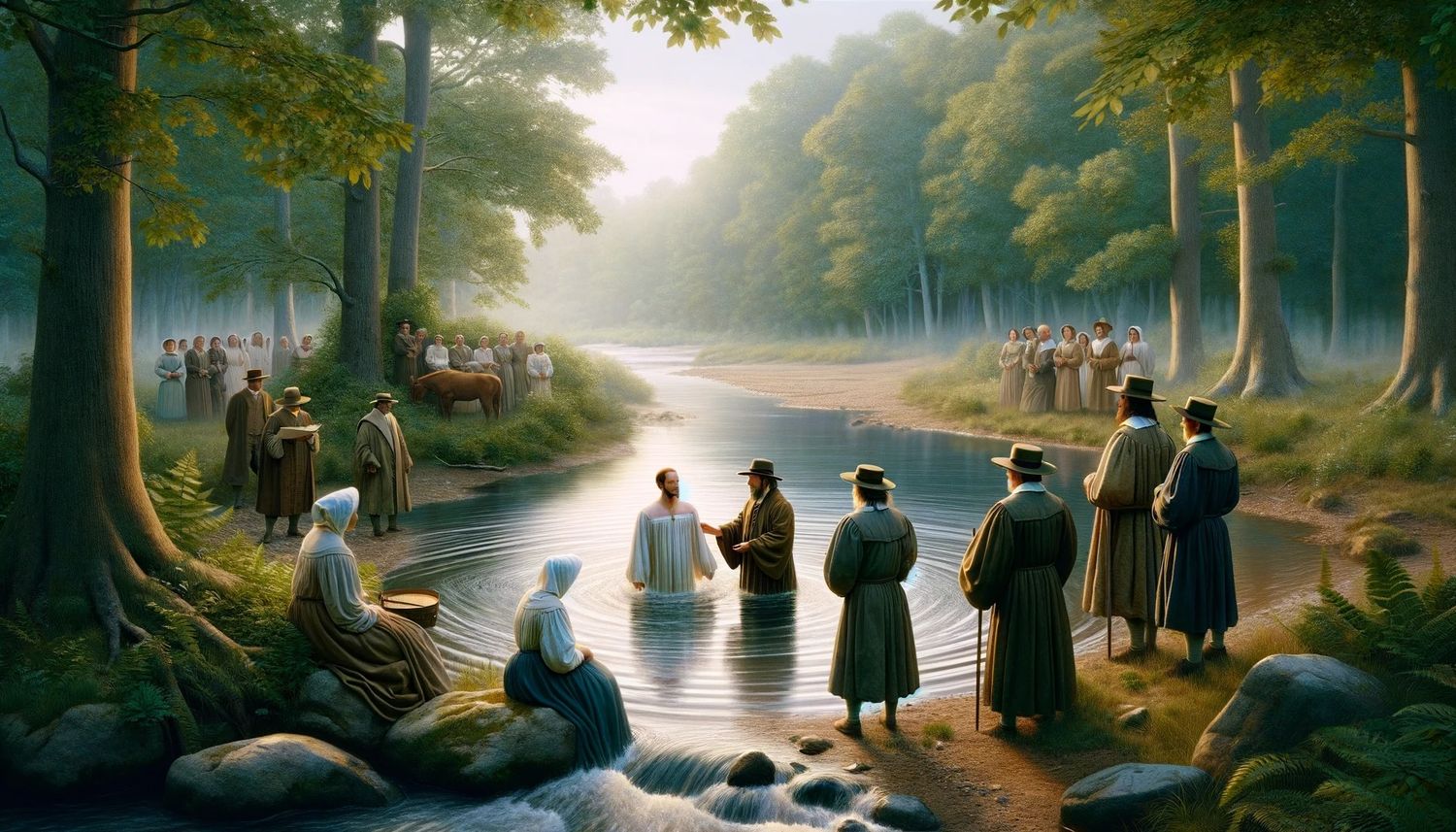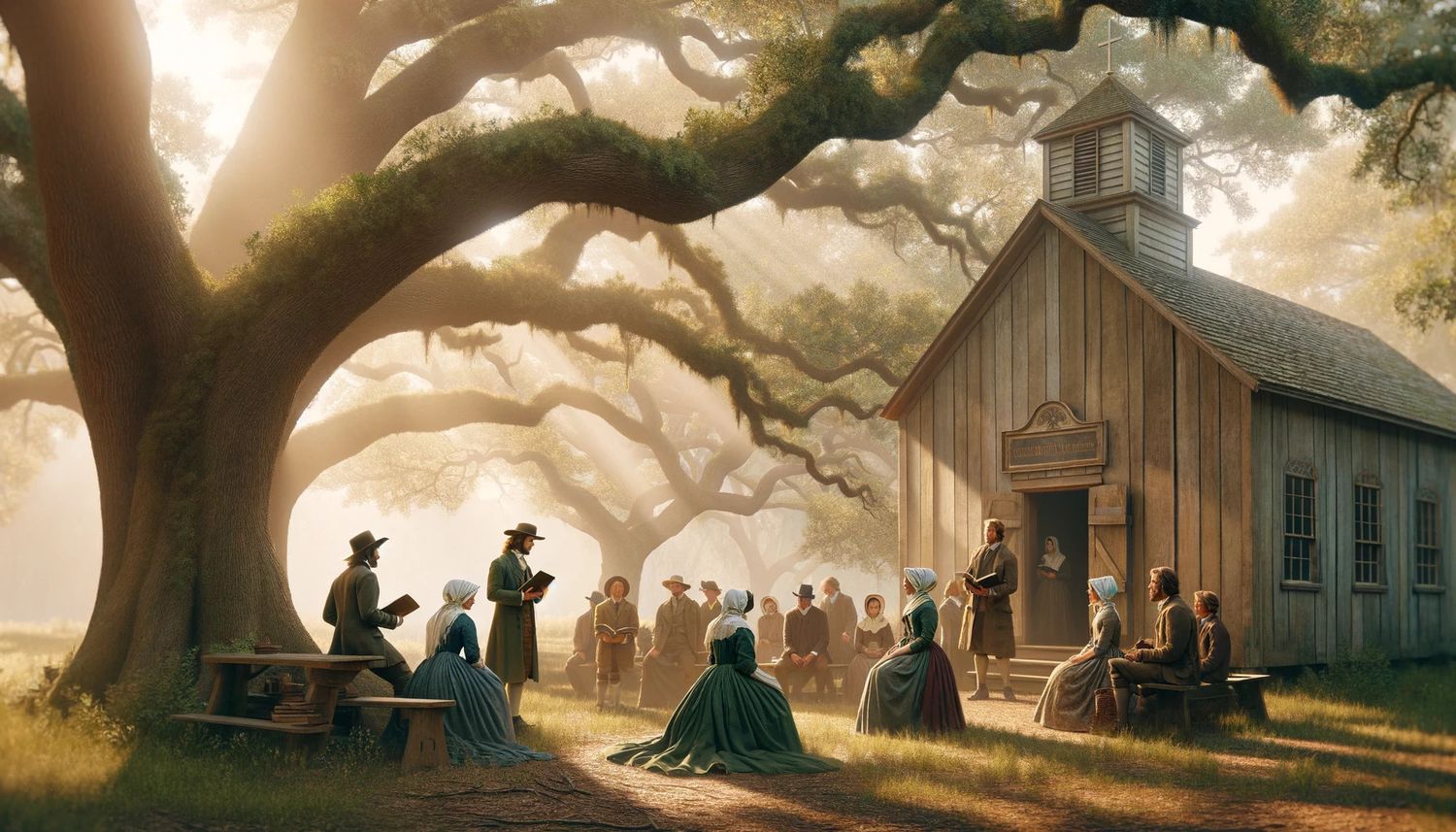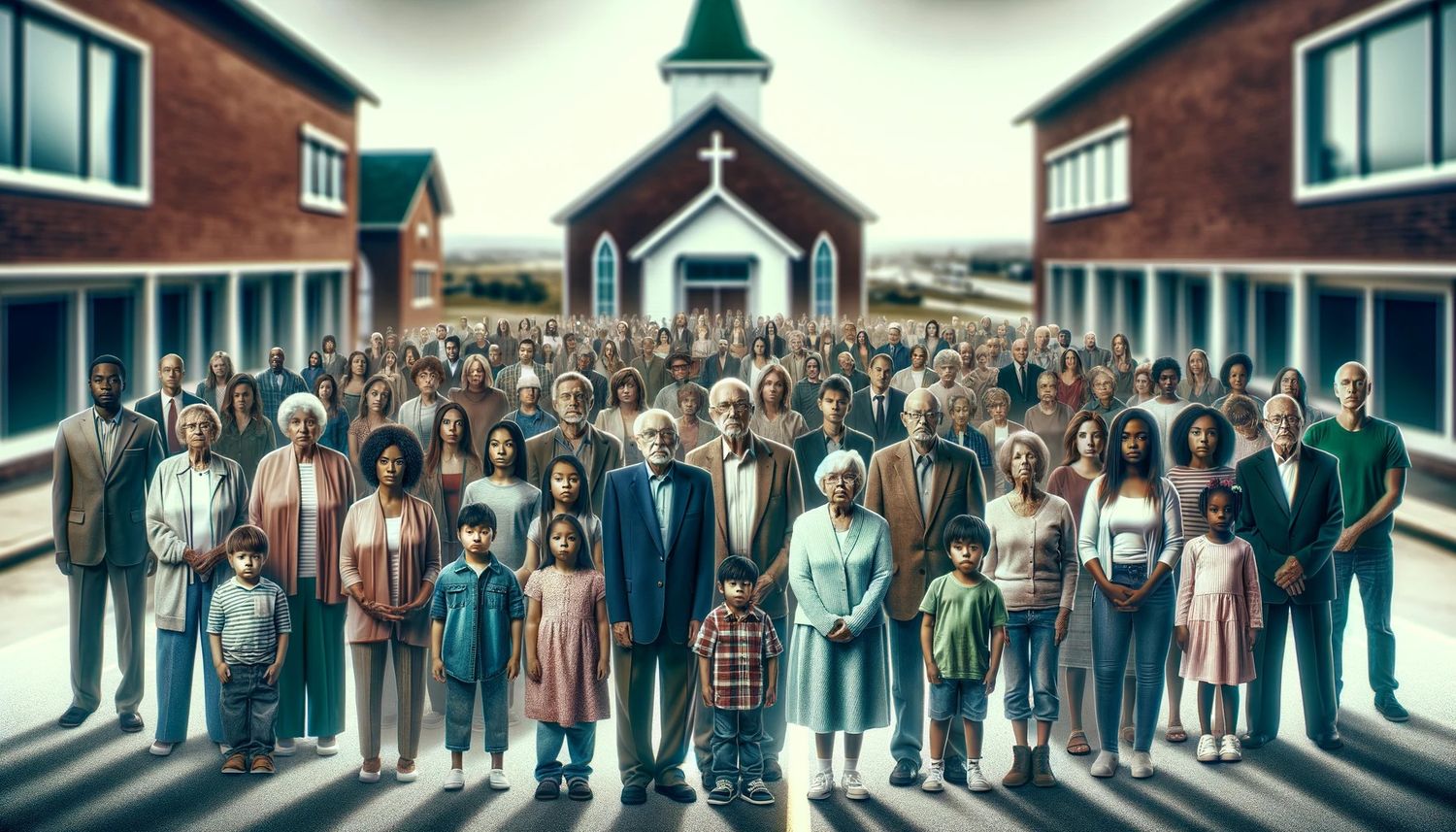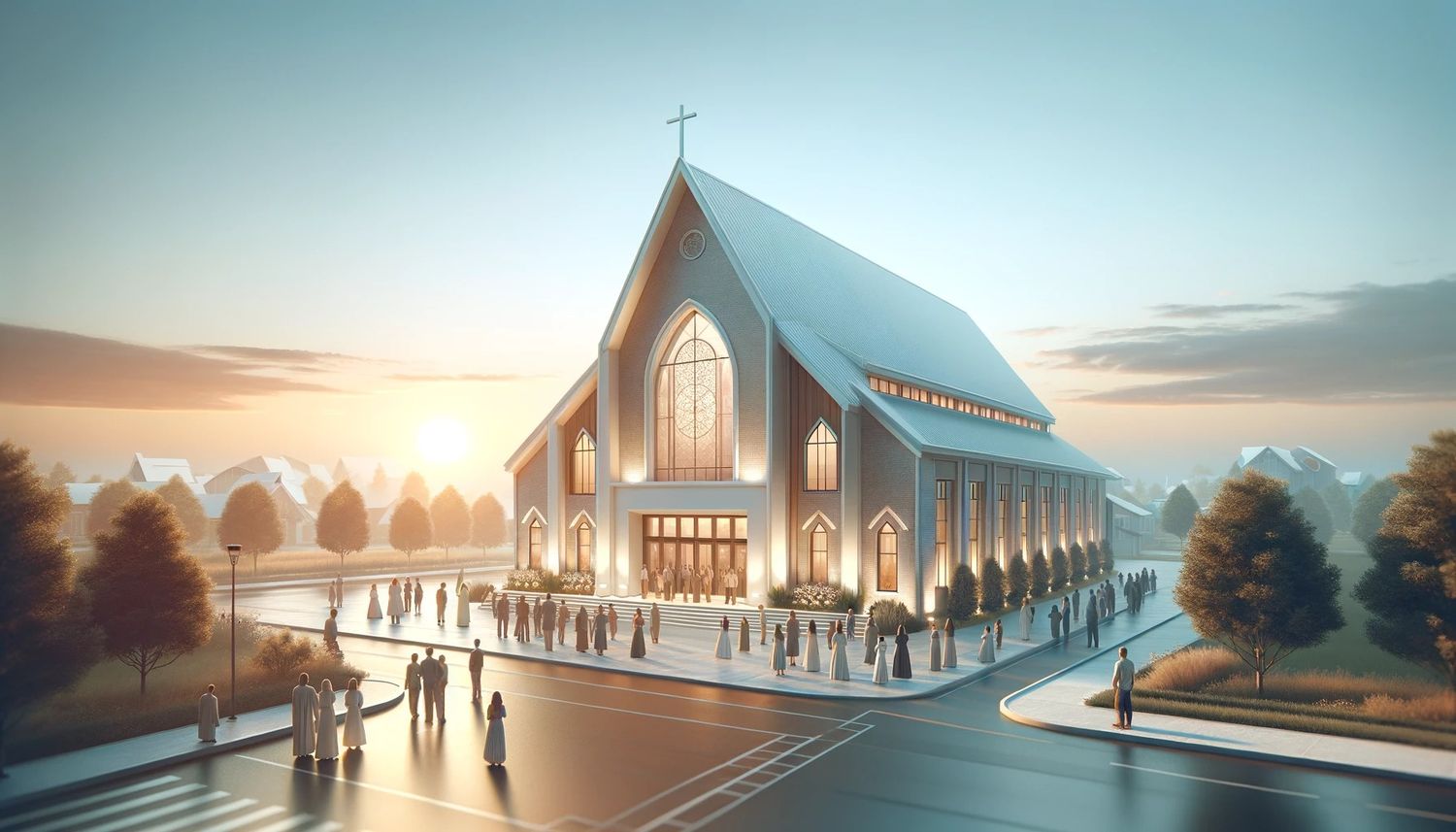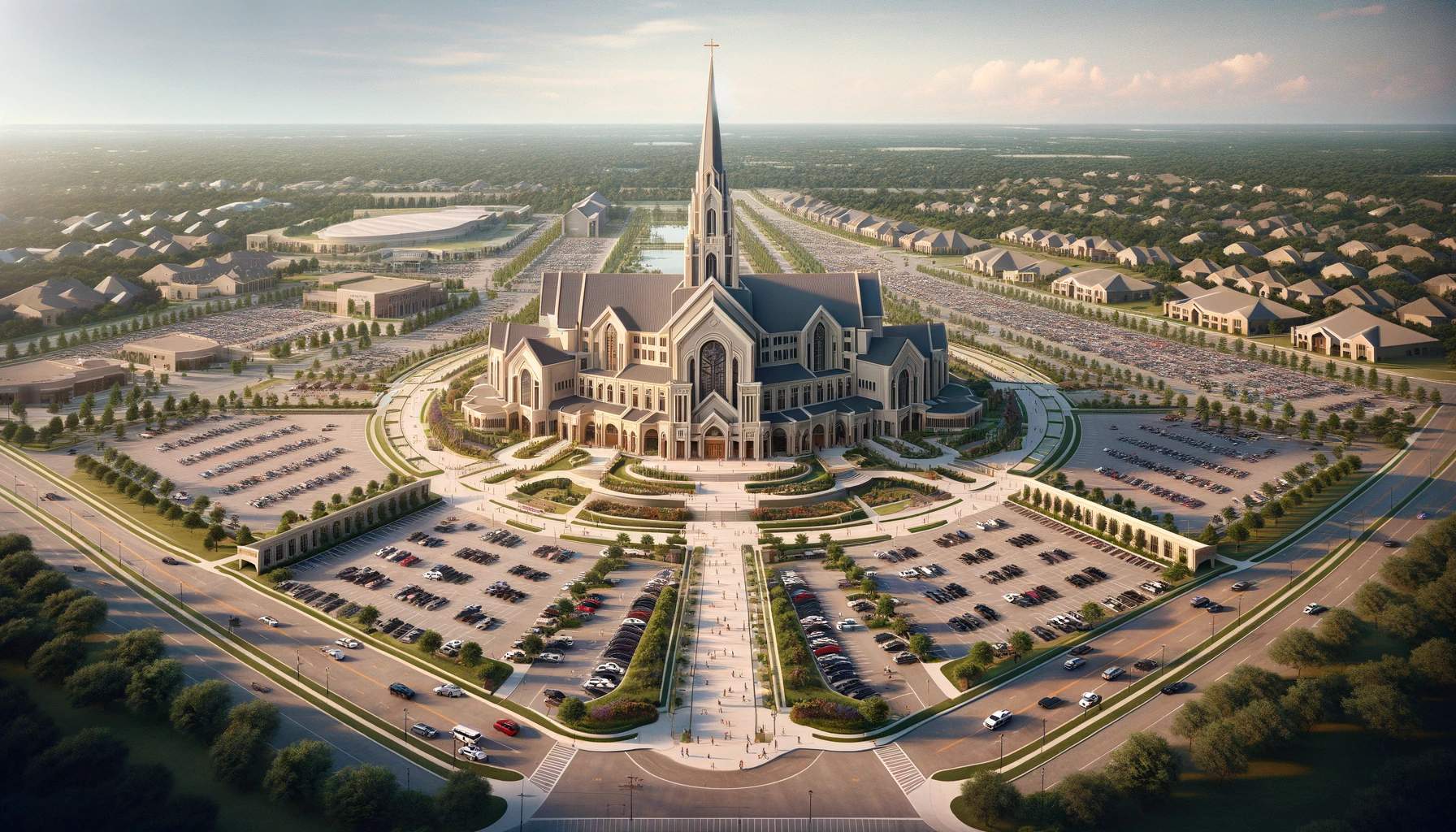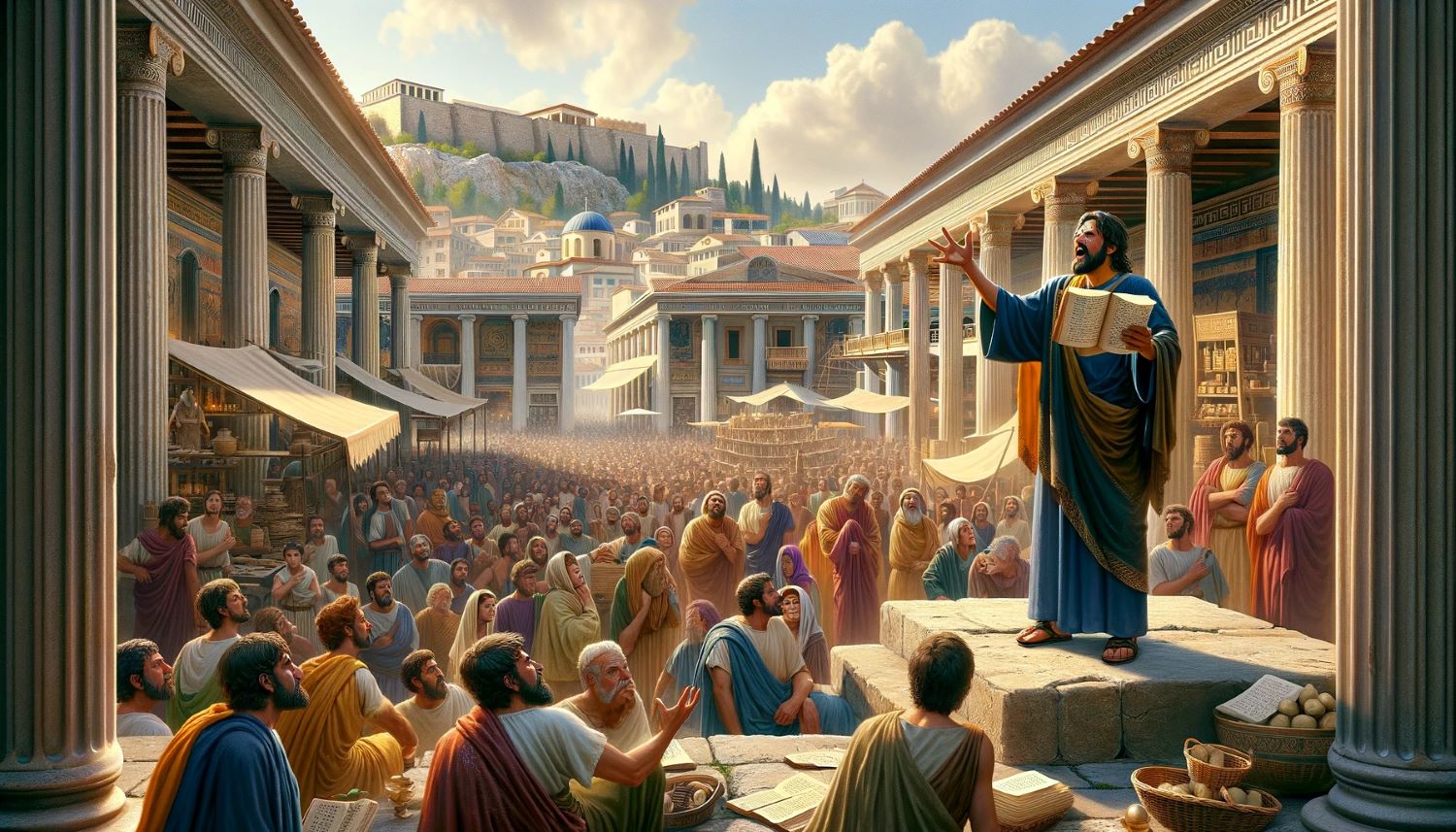Home>Theology and Spirituality>How Did Southern Baptist Church Start


Theology and Spirituality
How Did Southern Baptist Church Start
Published: February 23, 2024
Peter Smith, Editorial Director at Christian.net, combines deep insights into faith, politics, and culture to lead content creation that resonates widely. Awarded for his contributions to religious discourse, he previously headed a major organization for religious communicators, enhancing dialogue on faith's societal impacts.
Discover the origins of the Southern Baptist Church and its impact on theology and spirituality. Learn about the history and founding principles.
(Many of the links in this article redirect to a specific reviewed product. Your purchase of these products through affiliate links helps to generate commission for Christian.net, at no extra cost. Learn more)
Table of Contents
Introduction
The Southern Baptist Church stands as a prominent and influential denomination within the landscape of American Christianity. Its rich history, deep-rooted traditions, and unwavering commitment to faith have shaped the spiritual journeys of countless individuals across generations. Understanding the origins and evolution of the Southern Baptist Church provides valuable insights into the religious tapestry of the United States.
As we delve into the annals of history, we embark on a captivating journey that unveils the remarkable story of the Southern Baptist Church. From its humble beginnings to its remarkable growth and impact, the narrative of this denomination is a testament to the enduring power of faith and community. Join us as we explore the early roots, pivotal moments, and key figures that have shaped the Southern Baptist Church into the influential institution it is today.
Read more: Why Did The Southern Baptist Church Split
Early Beginnings of Baptist Churches in America
The early roots of Baptist churches in America can be traced back to the early 17th century, a time marked by religious fervor and the quest for religious freedom. The Baptist tradition emerged within the broader context of the Protestant Reformation, with its emphasis on individual interpretation of scripture and believer's baptism. The foundational principles of Baptist faith, including the autonomy of local congregations and the separation of church and state, laid the groundwork for the development of Baptist churches in America.
One of the earliest Baptist congregations in America was established by Roger Williams in Providence, Rhode Island, in 1638. Williams, a staunch advocate for religious liberty, founded the first Baptist church in the American colonies, championing the idea of freedom of conscience and the separation of church and state. This pivotal moment marked the beginning of a distinct Baptist presence in the New World, characterized by a steadfast commitment to religious freedom and individual conscience.
The Baptist movement continued to gain momentum, attracting diverse groups of believers who sought a more personal and experiential expression of their faith. The First Baptist Church of Boston, founded in 1665, and the Philadelphia Baptist Association, established in 1707, further solidified the presence of Baptist congregations in America. These early communities of faith embodied the core tenets of Baptist belief, emphasizing the priesthood of all believers and the authority of scripture in matters of faith and practice.
The Baptist churches in America faced significant challenges and persecution, particularly in the colonial era, as they diverged from the established state churches and traditional religious norms. Despite these obstacles, the Baptist movement persevered, fueled by a deep commitment to religious liberty and the conviction that each individual had the right to worship according to the dictates of conscience.
The early beginnings of Baptist churches in America laid the groundwork for the flourishing of the Baptist tradition across the country. The principles of religious freedom, believer's baptism, and congregational autonomy became defining features of Baptist identity, shaping the trajectory of the denomination as it evolved and expanded in the centuries to come.
Formation of the Southern Baptist Convention
The formation of the Southern Baptist Convention (SBC) represents a pivotal chapter in the history of Baptist churches in America. The roots of the SBC can be traced back to the 19th century, a period marked by significant social, cultural, and theological shifts within the Baptist community. As the nation grappled with the complexities of slavery and its implications for religious institutions, the Baptist churches in the southern United States faced profound challenges that ultimately led to the creation of the SBC.
The catalyst for the formation of the SBC can be attributed to the divisive issue of slavery, which deeply impacted the southern Baptist congregations. The growing tensions surrounding slavery and its moral implications created a schism within the Baptist community, particularly between churches in the North and those in the South. The differing perspectives on slavery and its compatibility with Christian principles led to a fracture in the Baptist fellowship, prompting the need for a separate organizational structure to address the unique concerns of the southern churches.
In 1845, delegates from southern Baptist churches convened in Augusta, Georgia, to establish the Southern Baptist Convention. This pivotal gathering marked the formal separation of the southern Baptist churches from their northern counterparts, solidifying the distinct identity of the SBC. The formation of the SBC provided a platform for the southern Baptist churches to address issues specific to their region, including the defense of slavery and the preservation of their theological and cultural distinctiveness.
The establishment of the SBC also reflected a commitment to the autonomy of local churches and the cooperative spirit of Baptist congregations. Through the convention, southern Baptist churches sought to collaborate on mission endeavors, theological education, and benevolent efforts, fostering a sense of unity and shared purpose among the member churches.
The formation of the Southern Baptist Convention not only addressed the immediate challenges facing the southern Baptist churches but also laid the foundation for a distinct denominational identity that would shape the trajectory of the SBC in the years to come. The convention's commitment to mission work, evangelism, and theological education has propelled the SBC to become one of the largest and most influential Protestant denominations in the United States, leaving an indelible mark on the religious landscape of the nation.
The establishment of the SBC stands as a testament to the resilience, adaptability, and unwavering faith of the southern Baptist churches, underscoring their commitment to preserving their theological convictions and engaging in collaborative efforts to advance the Kingdom of God.
Key Figures in the Establishment of the Southern Baptist Church
The establishment of the Southern Baptist Convention (SBC) was shaped by the visionary leadership and unwavering commitment of key figures who played instrumental roles in the formation and early development of the denomination. These individuals, driven by their deep faith and dedication to the Baptist tradition, left an indelible mark on the history of the Southern Baptist Church.
Richard Furman
Richard Furman, a prominent Baptist minister and theologian, emerged as a leading figure in the establishment of the Southern Baptist Church. His influential writings and impassioned advocacy for the autonomy of local churches and religious liberty laid the groundwork for the formation of the SBC. Furman's steadfast commitment to the principles of Baptist faith, coupled with his visionary leadership, galvanized the southern Baptist congregations and paved the way for the creation of a distinct organizational structure that would address the unique needs and challenges of the region.
Read more: What Is A Southern Baptist Church
Basil Manly Sr. and Basil Manly Jr.
The father-son duo of Basil Manly Sr. and Basil Manly Jr. made significant contributions to the early development of the Southern Baptist Convention. Basil Manly Sr., a revered Baptist pastor and educator, played a pivotal role in shaping the theological landscape of the denomination, advocating for the preservation of Baptist principles and the advancement of theological education. His son, Basil Manly Jr., a distinguished theologian and leader, furthered his father's legacy by championing the cause of southern Baptist churches and promoting the cooperative spirit that defined the SBC. The Manly family's enduring impact on the theological and educational aspects of the SBC continues to resonate within the denomination to this day.
William Bullein Johnson
William Bullein Johnson, a visionary Baptist pastor and educator, emerged as a key architect of the Southern Baptist Convention. His unwavering commitment to the autonomy of local churches and his impassioned advocacy for the preservation of Baptist identity were instrumental in the formation of the SBC. Johnson's leadership and organizational acumen were pivotal in uniting the southern Baptist churches under the umbrella of the convention, laying the groundwork for collaborative mission endeavors and cooperative efforts that would define the trajectory of the denomination.
These key figures, among others, played pivotal roles in the establishment of the Southern Baptist Church, shaping its identity and setting the stage for its remarkable growth and influence. Their visionary leadership, unwavering faith, and commitment to Baptist principles continue to inspire and guide the Southern Baptist Convention as it navigates the challenges and opportunities of the modern era.
Growth and Expansion of the Southern Baptist Church
The growth and expansion of the Southern Baptist Church represent a compelling saga of faith, resilience, and unwavering commitment to the mission of spreading the Gospel. From its humble beginnings in the 19th century to its present-day prominence, the Southern Baptist Convention (SBC) has experienced remarkable growth and has emerged as one of the largest Protestant denominations in the United States.
The post-Civil War era marked a period of significant expansion for the Southern Baptist Church. The convention's steadfast dedication to evangelism, missions, and theological education fueled its rapid growth, attracting a diverse array of believers who resonated with the denomination's emphasis on biblical authority and the Great Commission. The SBC's commitment to establishing and supporting mission efforts both domestically and internationally played a pivotal role in expanding its reach and influence, as countless individuals were drawn to the denomination's fervent dedication to sharing the message of salvation.
The 20th century witnessed a surge in the Southern Baptist Church's membership and influence, propelled by a concerted focus on evangelism, church planting, and benevolent initiatives. The denomination's unwavering commitment to preserving its theological distinctiveness while engaging with contemporary issues resonated with a broad spectrum of individuals, contributing to its remarkable growth and expansion across the United States and beyond.
The Southern Baptist Church's emphasis on theological education and the training of future leaders further bolstered its expansion, equipping a new generation of pastors, missionaries, and educators to carry forth the denomination's mission and values. The establishment of seminaries and educational institutions under the auspices of the SBC underscored its dedication to nurturing a robust and informed ministry, laying the groundwork for sustained growth and impact in the decades to come.
Today, the Southern Baptist Church continues to experience growth and expansion, albeit within a dynamic and evolving religious landscape. Its commitment to engaging with contemporary challenges while remaining steadfast in its theological convictions positions the denomination for continued relevance and influence in the 21st century. The Southern Baptist Convention's unwavering dedication to its mission, coupled with its adaptability and resilience, ensures that its legacy of growth and expansion endures, shaping the spiritual journeys of individuals and communities for generations to come.
Conclusion
The journey of the Southern Baptist Church is a testament to the enduring power of faith, resilience, and the transformative impact of a community united in its commitment to the Gospel. From its early beginnings within the broader Baptist tradition to the formation of the Southern Baptist Convention and its remarkable growth and expansion, the narrative of this denomination reflects the indelible imprint it has left on the religious landscape of the United States.
The Southern Baptist Church's rich history is woven with the threads of unwavering conviction, visionary leadership, and a deep sense of purpose. Its emergence as a distinct entity within the Baptist community, shaped by the complexities of the 19th-century American South, underscores the denomination's ability to navigate challenges and carve out a unique identity rooted in faith and autonomy.
The key figures who played pivotal roles in the establishment of the Southern Baptist Convention exemplified the embodiment of steadfast dedication to Baptist principles and the cooperative spirit that defined the denomination. Their visionary leadership and unwavering commitment to preserving the theological distinctiveness of the southern Baptist churches laid the foundation for the enduring legacy of the SBC.
As the Southern Baptist Church continues to navigate the complexities of the modern era, its growth and expansion stand as a testament to its ability to adapt and evolve while remaining anchored in its foundational beliefs. The denomination's unwavering commitment to mission work, evangelism, and theological education positions it as a dynamic and influential force in contemporary American Christianity.
Looking ahead, the Southern Baptist Church is poised to continue its legacy of growth and impact, guided by its enduring commitment to the Great Commission and the timeless truths of the Gospel. Its journey, marked by resilience, adaptability, and unwavering faith, serves as an inspiration to individuals and communities, reflecting the enduring power of a faith community united in its pursuit of sharing the message of salvation and hope.
In conclusion, the story of the Southern Baptist Church is a testament to the transformative power of faith, the resilience of a community united in purpose, and the enduring legacy of a denomination that continues to shape the spiritual landscape of the United States.

